News & Announcements
- Details
- Written by Joshua Wachtel
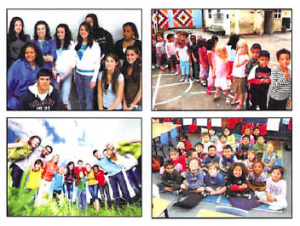 Last month John Bailie, IIRP’s Director of Continuing Education, was invited to speak at a conference in the state of Delaware, U.S.A., called “Partnering for Educational Success: Helping Youth in Care.” The overall focus was to explore how people could begin to better serve youth in their respective counties by working together across schools, the juvenile justice system and social work.
Last month John Bailie, IIRP’s Director of Continuing Education, was invited to speak at a conference in the state of Delaware, U.S.A., called “Partnering for Educational Success: Helping Youth in Care.” The overall focus was to explore how people could begin to better serve youth in their respective counties by working together across schools, the juvenile justice system and social work.
Sponsors of the conference included the Family Court of Delaware, the Delaware Department of Education, the Department of Children, Youth and Their Families, and the Office of the Child Advocate, with opening remarks by the chief judge, and the secretaries of education and the department of children. Attendees included representatives of the family court, schools and social services, as well as judges and legal advocates.
- Details
- Written by Joshua Wachtel
 Dreaming of a New Reality: How restorative practices reduce crime and violence, improve relationships and strengthen civil society by Ted Wachtel
Dreaming of a New Reality: How restorative practices reduce crime and violence, improve relationships and strengthen civil society by Ted Wachtel
The International Institute for Restorative Practices is excited to announce the publication of a new book by president and founder Ted Wachtel.
With compelling stories and statistics that demonstrate the promise of the exciting social movement known as restorative practices, Dreaming of a New Reality for the first time synthesizes the practices' many applications – in schools, justice systems, families and workplaces.
This inspirational narrative shows how thirty-five years of dreams and dedication can lead to proven results – healing victims, preventing bullying, curbing conflict and boosting satisfaction and productivity.
Dreaming of a New Reality is a manifesto for a movement: a powerful call to implement restorative practices worldwide – because it works.
"Restorative practices have positive implications for all social settings, from families to schools to workplaces. Drawing from both liberal and conservative values, restorative practices cultivate a society based on participation and mutual self-reliance, where as citizens we take greater responsibility for our own lives."
- Ted Wachtel, Dreaming of a New Reality
Order the book in print or electronic format here.
- Details
- Written by Joshua Wachtel
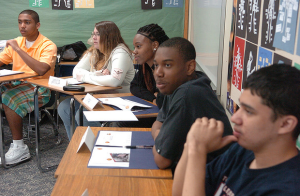 Photo by USAG Humphreys at Flickr Creative Commons
Photo by USAG Humphreys at Flickr Creative Commons
"Hurt people hurt people: Helped people help people," write Angela Dornai and Dorothy Vaandering in an article in the March/April issue of Canadian Teacher Magazine. They illustrate their theme with an emotionally charged incident that in many schools might have led to a suspension or expulsion but instead resulted in better understanding all around. The following happened in a Toronto area school and provides a great contrast to the "school to prison pipeline."
On the day we were to examine Incident [a poem by Countee Cullen about the impact of being called "n*****" as a child] in Grade 12 College English, a student from another class came in and addressed a group of students as “n******s.” The response was immediate and volatile. Literature and life collided, setting the stage not only for meeting curriculum expectations, but also for supporting and holding each other accountable to the agreement we had established together at the start of the semester — that as we studied the academic curriculum, we would also work together to improve social, emotional, behavioural and academic outcomes for individuals in class and beyond.
- Details
- Written by Joshua Wachtel
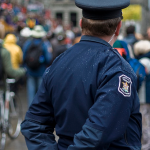 Photo by iangbl at Flickr Creative Commons
Photo by iangbl at Flickr Creative Commons
When a new program or practice becomes more common, it is bound to face criticism as it draws attention. This is true for restorative justice, particularly as it gains ground in the UK and increasingly is sanctioned by law. During a 7-minute discussion on BBC radio, Peter Neyroud, the former chief constable of Thames Valley police department (which pioneered the use of "restorative cautioning" more than 15 years ago), and Garry Shewan, assistant chief constable of Greater Manchester Police, argue for high quality deliverance of restorative justice.
Neyroud expresses his concern that "community disposals," in which police are permitted to handle low-level crimes through a voluntary restorative process when victims agree to participate, have been overused. In particular, they have been used in domestic violence cases, which he said should be explicitly excluded from such disposals because battered partners may be coerced to participate.
Shewan agrees. However, he argues that when restorative justice is delivered well, and is victim-led, it not only meets the government's guidelines but consists of good, effective practice.
The conversation may be heard here.
- Details
- Written by Joshua Wachtel
 "Test Tube" by Jason Hickey at Flickr Creative Commons.
"Test Tube" by Jason Hickey at Flickr Creative Commons.
I noticed a story last week about a Florida teen who was expelled from school for a science experiment gone wrong. This case is garnering a lot of attention because the intent of the student was not only harmless, but also because this teen, Kiera Wilmot, was an otherwise model student. Now the ACLU is taking up the cause, which calls attention to the continuing criminalization of youth in schools and often dubbed the "School to Prison Pipeline." Rebecca McCray explains the story:
[Kiera] Wilmot, a student at Bartow High School in Polk County, Florida, mixed together household chemicals on school grounds to see what might happen. For this youthful experiment, she found herself arrested and charged as an adult when the concoction caused a minor explosion. The only casualty at the scene of this supposed crime? A plastic bottle.
- Details
- Written by Joshua Wachtel
 Image by DonkeyHotey at Flick Creative Commons
Image by DonkeyHotey at Flick Creative Commons
An extraordinary essay has recently been published in the United Kingdom by the Institute for Public Policy Research, a progressive think tank based in London, England. Paul Nolan, director of Justice Fellowship, the criminal justice reform arm of Prison Fellowship International, in a publication titled "Criminal justice reform: A revolution on the American right," writes:
For years, American conservatives have turned a blind eye to the excesses of the criminal justice system. Because we share the same goals as prisons – to take dangerous people off the streets – conservatives have assumed that prisons are different from other government agencies. However, as the economic recession has forced state budgets to be tightened, conservatives have taken another look at prisons – and we don’t like what we have found. Anti-tax crusader Grover Norquist expressed the growing consensus: ‘Spending more on education doesn’t necessarily get you more education ... That’s also true about criminal justice and fighting crime.’ (p. 3)
- Details
- Written by Joshua Wachtel
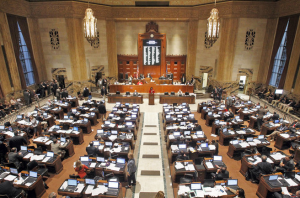 The House of Representatives of the state of Louisiana, USA, is the latest state governing body to consider adopting a law to change disciplinary codes in its schools. Stop Bullying Louisiana and Louisiana Progress issued a policy brief on Louisiana House Bill 646: The Safe and Successful Students Act titled "The Importance of Positive School Climate." The one-page brief says:
The House of Representatives of the state of Louisiana, USA, is the latest state governing body to consider adopting a law to change disciplinary codes in its schools. Stop Bullying Louisiana and Louisiana Progress issued a policy brief on Louisiana House Bill 646: The Safe and Successful Students Act titled "The Importance of Positive School Climate." The one-page brief says:
"In addition to reducing the reliance of schools on zero-tolerance policies and exclusionary forms of discipline such as suspension and expulsion in response to offenses that do not present a major threat to the safety of a school, HB 646 promotes wherever possible the use of restorative practices and other measures designed to promote positive school climates. Recent research is very clear that this approach creates safer schools in which students can succeed in a variety of measurable ways."
- Details
- Written by Joshua Wachtel
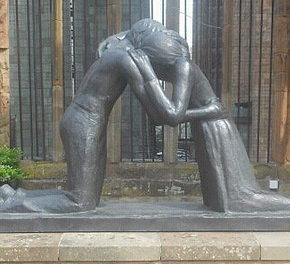 Reconciliation statue by Josefina de Vasconcellos, in St. Michael's Cathedral, Coventry, UKI recently came across an article by Paul Chambers in UK's Third Way Magazine, which provides a good introduction on restorative justice. Titled "Face-to-face justice," the piece begins by recounting a raw and emotionally powerful situation:
Reconciliation statue by Josefina de Vasconcellos, in St. Michael's Cathedral, Coventry, UKI recently came across an article by Paul Chambers in UK's Third Way Magazine, which provides a good introduction on restorative justice. Titled "Face-to-face justice," the piece begins by recounting a raw and emotionally powerful situation:
She walks down the long corridor from her cell to the meeting room, her fear and tension palpable. Never in my life have I seen someone so uncomfortable in her own skin. This young woman killed her father and now, nearly a decade later, is about to meet his brother - her uncle - for the first time since the death that irrevocably changed both their lives.
What does each hope to find in this meeting, with all its emotional risks? Perhaps some elusive answers to hard questions; but also a chance to tell their stories, to explain for the first time how deep the hurt has gone.
- Details
- Written by Joshua Wachtel
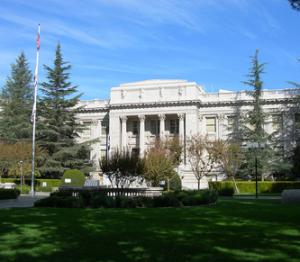 The following is the first few paragraphs of an article by David Greenwald for Vanguard Court Watch of Yolo County, California, titled "DA Puts Forward Innovative "Neighborhood Court" Program Incorporating Principles of Restorative Justice."
The following is the first few paragraphs of an article by David Greenwald for Vanguard Court Watch of Yolo County, California, titled "DA Puts Forward Innovative "Neighborhood Court" Program Incorporating Principles of Restorative Justice."
On Monday the Yolo County District Attorney's office unveiled an innovative new pilot project, modeled after a program that San Francisco District Attorney George Gascon implemented two years ago.
Jeff Reisig unveiled a program, in partnership with the Davis Police Department and the UC Davis Police Department, called the Neighborhood Court, a new adult criminal offender diversion program based on restorative justice. This innovative program will be offered in the city of Davis and on the UC Davis campus, starting in May of 2013.
- Details
- Written by Joshua Wachtel
 Moment of silence for Boston bombing victims. Photo by Rebecca Hildreth at Flick Creative Commons
Moment of silence for Boston bombing victims. Photo by Rebecca Hildreth at Flick Creative Commons
Pierre R. Berastaín, a student at Harvard Divinity School, proposes that restorative circle processes be used to address the violence last week at the Boston Marathon, and the frayed feelings of people throughout the city of Boston and elsewhere. Writing on a Huffington Post blog, in a piece titled "Restorative Justice: Re-storying What Happened in Boston," Berastaín reflects that "Nothing is over; nothing returns to normal," but he offers a suggestion:
[R]estorative practices [can] help us deal with trauma, as these practices call us to sit in circle to process and connect with each other through the common thread of our experiences.
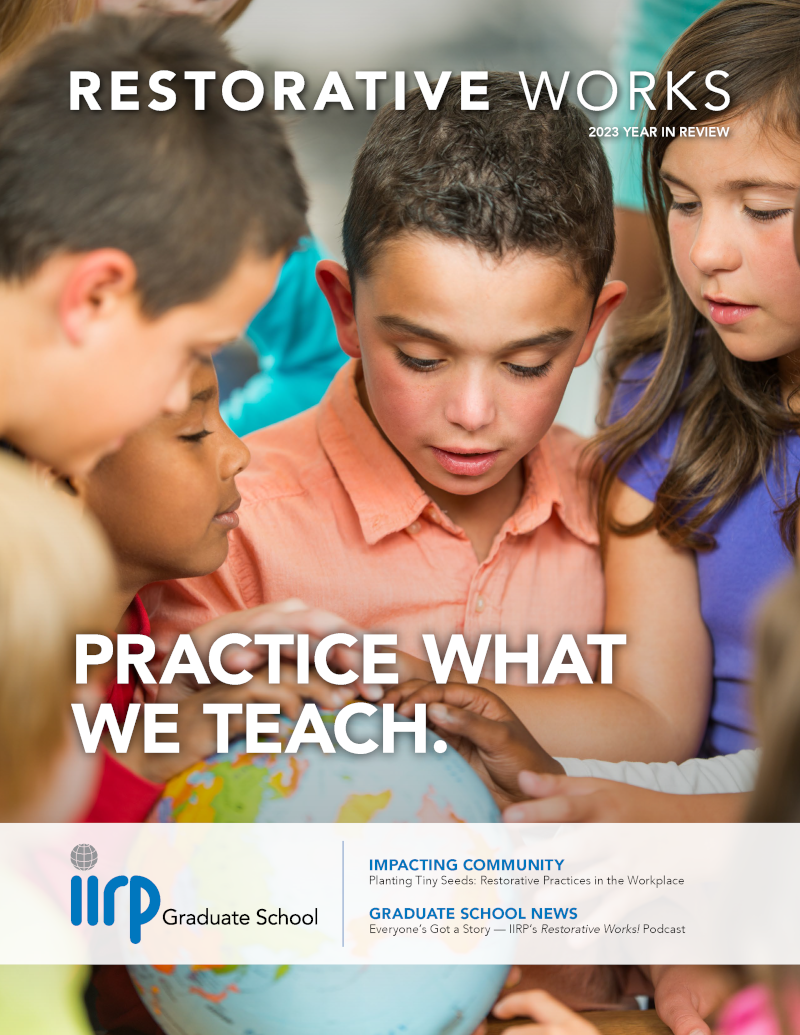
Restorative Works Year in Review 2023 (PDF)
All our donors are acknowledged annually in Restorative Works.
